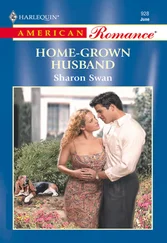She was shyly proud of having vanquished love. I can’t reproduce it, but believe me, there was a way she told her history which made it not so perverse and unlovely as it might sound. Her face was too close to mine, the beer was too good, for me to remember well. “God forgive me, but I do believe all young love is wrong and I can’t say I mind about destroying it. But here I am eighteen years old and in love with you, Harry.” She told me that one night. I do remember that. Bonnie laid her left hand on the seat so our fingers touched, giving me a bare naked shock. She felt cold and brittle, she held her hand against the nerve-marrow of my bones; she did not sweat, and I felt like a damned walrus touching her, this odd sort of virgin. “I wouldn’t care if … well, I just wouldn’t care at all if I was with you. You rat. You think some girl better than me is out there in the future, don’t you? You’re in love with her already and I can’t do anything about some little priss-ass in your imagination. If I met her, I could do something about it.” She licked her teeth, the virgin crippled witch, so deadly sure.
Then she recognized the woman in the convertible next to us. It was her dorm-mother, the widow, who was a total success pretending to be an old whore. She had the country-and-western station up howling on her radio. She held her cigarette like a torch, this widow. Bonnie screamed to me who it was, and I backed out. The ride back wasn’t pleasant. Bonnie said she was done for at the college and wanted me to turn off at every dark road. What the deuce, she said; she might as well get pregnant by somebody she cared for, and live in some swamp hut with his infant, because, what the deuce, what was living going to be like now? Look up at the stars, Harry. There were so many of them out that night they seemed like an electric dust over us. The stars were urgent and careless, and the black air of the universe was advertising sheer rapturous multiplication. A man could imagine the million little people of his sperm lit up like that in the wide black endlessness of a womb. One could give in so easily and combine with the carelessness of the universe. I don’t know if Bonnie was thinking all that, but it was there to think of. I took her straight to the dorm. That ended Bonnie and me. The dorm-mother locked her in for half the year, and I got only one phone call from Bonnie telling me what it was like being at the mercy of the widow, who sat on the bed next to hers and taught her morals by exemplums from the life of her dead husband, the thirteenth disciple.
But I do not readily admit that I had come to the wrong place. Hedermansever was ruesome in many ways, but I confess it was not all dead. There were a half dozen members on the faculty who did teach me there were alternatives between being a corpse and being an ass, and who bragged on me for very small feats — my poetry, for example. About D. and S. and the L’s. and Miss J., my teachers, I still give very much of a damn. There are others around the campus who’ll say I was honest in all the wrong places in this book. Bad shake to them.
My first roommate was a freshman preacher from South Carolina who wore quadrafocal glasses: Blind Tim, the Pastor, already a pastor at age eighteen, ordained by his church at sixteen. He woke me up more than a few nights listening to this late radio broadcast from Arizona. It was the sincere, true thing, he said. The man broadcasting was a college-educated Navajo converted from the medicine men and then from Roman Catholicism to a cult of angry Protestants in Phoenix. My roommate had a transistor radio with an aerial that let out two stories high. He’d hear a fragment of the sermon he wanted, cease thrusting up the aerial, and jam his ear to the box with its blue-lit band. This poor boy lived by his ears; he might have been going blind, in truth, with those quadrofocal glasses that weighed half a pound. When he got his radio sermon, though, his eyes boiled like grease through a hall of mirrors. His morguish white cheeks hung off his eyes and were covered with whiskers that sprouted like some sort of filth; you thought of a grapefruit rind somebody had used for an ashtray. He had the voice of a sissy nightwatchman.
“Navajo Ben is right! America is walking on cellophane paper over the pit of hell! For Americans there awaits a worse hell than for any people in the world. ‘To whom much is given, much shall be required!’”
He was packing in his aerial and glaring at me. I told him Navajo Ben didn’t know his butt from a tom-tom. I didn’t care for that fiery educated voice piercing through the static two thousand miles, nor for whoever had the money to build that powerful a radio station to air Navajo Ben’s message every night of the week. The fact is, that faraway Indian voice was unsettling me; there was a torment in it that cut too far into me. It had me facing life like I was plastered against the side of a stone cliff in Arizona and inching my way along a rim of rock a half-inch wide. Navajo Ben had gotten to me one night when he made a sermon on the body scars he’d received falling down nude at a peyote-eating ritual back on the reservation, and by the time he whispered, ‘God, the gentle Jesus Christ of scars, calling to me late in the evening to go out to His garden and compare scars…” I was ready to go with him. And now I resented Navajo Ben and his testimony of bruises; I did not want a male telling me about religion, because I can cut through male cant too easily, my mind hacks it like razors against hair; I know at the bottom of every male voice, no matter how detached- or firm-sounding, there is an old bald idiot screaming, “Save me !” But Navajo Ben almost dragged me out there with him.
Tim the Pastor and I broke up and he went to another room, with consent of the dorm-master. When he left I went about being wanton. I took my mattress off the bed frame, slept with it on the floor, taped up the pictures of all the models in Esquire magazine, girls dressed in silk and fur and slips and reckless sandals. My phonograph was always wailing. I brushed my teeth once a day and took a cigarette freely on impulse. On the back of my door was a picture of Maynard Ferguson, old scar-tissue-lipped Ferg, with his trumpet and wearing a purple sweater. Out of his mouth I had drawn a speech balloon enclosing the words “Practice, you bastard.” And all this is what passed for being a beatnik at Hedermansever. I’d already been thrown out of the student center twice for playing jazz with a few musician acquaintances. We drew a crowd of coeds itching to dance; the ex-preacher who had an easy loft here as a student dean came in to tell us loud dance music wasn’t the right thing at Hedermansever. This man held an office and drew a salary for such services. Like a social disease, he showed up on such occasions as involved clandestine pleasure; showed up, a raving, red-faced symptom, wherever joy became too unconfined — in his natty orlon shirt and loafers and his Ivy League crew-cut and his failing youth, just one of the boys, but God knows whose boys.
Two weeks went by before they threw in Bobby Dove to live with me. He took almost a week to truck in all the books and machinery that went along with him. His correct whole name was Robert Dove Fleece. He hadn’t made it with his roomie either. One thing I could see: he dragged in so much clutter that there wasn’t really room for anybody else to live with him. Fleece said little to me the first week. Then one afternoon I walked in on him and he broke open.
“You’re some counselor they’ve hired to live with me, aren’t you?” I had interrupted his reading at the long plywood table he had for a desk.
“No. I’m not. I’m in music.”
Читать дальше












